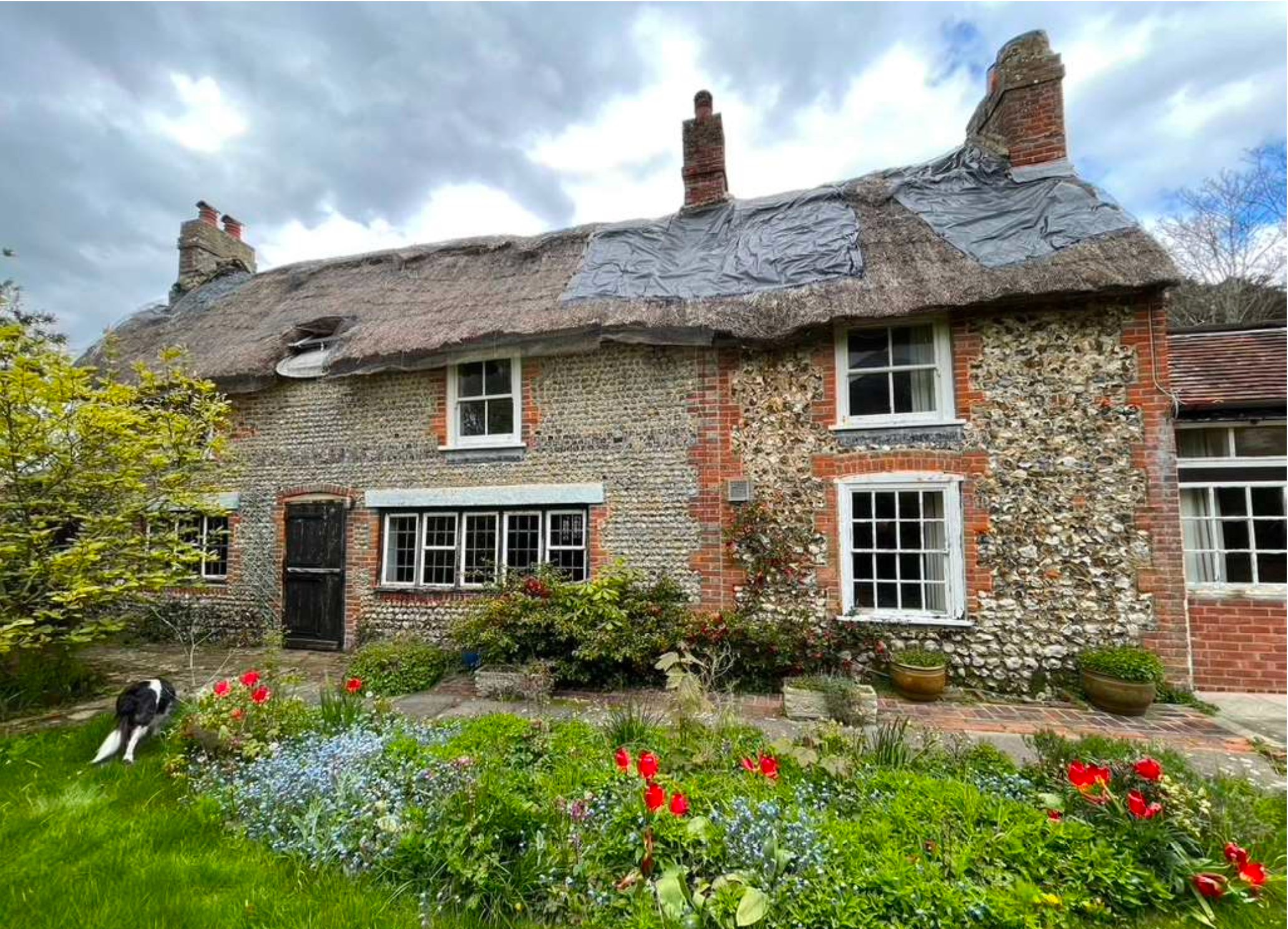
A seaside cottage in England once inhabited by the 18th-century poet and painter William Blake will be restored, with plans to convert it into a museum. The house, where, in 1804, Blake wrote the poem that would become the hymn “Jerusalem,” had been neglected for decades and is in a state of significant disrepair.
This week, it was announced that the house, in West Sussex, southern England, will be protected thanks to the joint efforts of three charities. Foulerton Charitable Trust, the Foyle Foundation, and the World Monuments Fund Britain, which has allocated £55,000 ($72,000).
A spokesperson for the World Monuments Fund Britain called Blake’s cottage “a site of literary memory, of national and international significance.”
Before the cottage can be opened to the public, the new funding will allow for much-needed restoration work. One priority is the roof, which is on the verge of collapse. The cost of replacing its rotting timber rafters and thatch is estimated to be £175,000 ($229,300), according to Doug Nicholls, chair of the Blake Cottage Trust, which bought the house in 2015 and has since campaigned for its preservation.
Further fundraising efforts will seek to convert the newly restored cottage into a museum by 2027, commemorating 200 years since Blake’s death in 1827. This will involve recreating the house as it was in the 19th century, including props like a replica of the writer’s printing machine. Possible digital innovations include holograms of Blake and his wife Catherine, according to a report in the Telegraph.
Portrait of William Blake by Thomas Phillips (1807). Photo by Ann Ronan Pictures/Print Collector/Getty Images.
The Blake Cottage Trust, a registered charity, recently named as its patron Bruce Dickinson, frontman of the English heavy metal band Iron Maiden. He has made multiple references to the visionary artist in his records over the years, and has offered to auction Iron Maiden memorabilia and play a fund-raising concert to support the cause of protecting the cottage.
“I am so excited by this first step towards preserving and reinvigorating this building,” commented Dickinson. “A living shrine to Blake and his art in the land of his birth and inspiration is long overdue.”
William Blake lived in the cottage for three years with Catherine, during which time he wrote the poem “And did those feet in ancient time,” as a preface to his epic Milton: A Poem in Two Books. The hymn based on this poem, “Jerusalem,” with music written by Sir Hubert Parry in 1916, is sometimes dubbed England’s “unofficial” national anthem. England has no official national anthem so on some occasions, such as when England competes in international football, Britain’s national anthem of “God Save the King” is used.
Other English authors whose houses have become public museums include Jane Austen, William Shakespeare, William Wordsworth, and the Brontë sisters. In 2014, Blake’s studio was recreated at the Ashmolean Museum in Oxford.